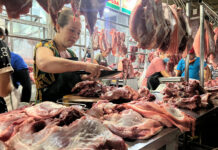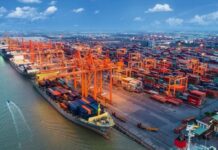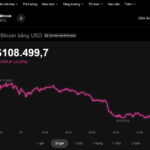Fortune Magazine reports that beer and alcohol producers have had a terrible 2023 with numerous challenges emerging.
At the beginning of the year, promising sales in the first quarter of 2023 due to the Lunar New Year in Asia had many beer companies expecting a fortunate year. However, things didn’t go as planned, with the most apparent sign being Heineken’s sales, the world’s second-largest beer company, still decreasing by 3% in the first three months of the year.
High inflation caused a decrease in sales as people tightened their spending, then supply chain disruptions and advertising campaign failures at Anheuser, as well as Carlsberg’s withdrawal from the Russian market, further complicated the situation.
While beer companies are hoping that the year-end holidays and Lunar New Year will give a boost to the entire industry, the trend of decreasing alcohol consumption for health reasons, as well as governments tightening alcohol regulations in Asia, make the situation gloomy for 2024.

Boycott
In April 2023, the world’s largest beer company, Anheuser-Busch, got caught up in a scandal involving its famous Bud Light brand in the US market. The company hiring a transgender person, Dylan Mulvaney, as a spokesperson caused mixed reactions.
Tiktok star Mulvaney faced fierce opposition and even a boycott wave from conservative customers in the traditional beer culture. However, instead of defending their spokesperson, Anheuser canceled the previous advertising campaign.
These actions immediately sparked criticism from the LGBTQ+ community, claiming Anheuser lacked support and empathy for Mulvaney in the incident, as well as demonstrated betrayal of trust and loss of credibility.
The “offenses” of both sides led to a 10.5% decrease in Anheuser’s US sales in the second quarter of 2023, equivalent to $400 million, as the boycott wave spread to other beer brands of the corporation.
In the third quarter of 2023, sales in the US continued to decline by 13.5% as Anheuser lost market share. Fortunately, the sales in other markets compensated for the decline, helping the company’s global total revenue still increase by 5%, equivalent to $15.6 billion compared to the same period last year.
Nevertheless, Anheuser still had to lay off hundreds of employees nationwide in the US to reduce costs in the context of losing market share due to the boycott wave.
However, this is not the only difficulty for Anheuser or the beer industry in general. Another challenge is inflation, which is making 2024 even more uncertain.
Inflation
According to Fortune Magazine, inflation and rising costs have made beer and alcohol more expensive in 2023. As these products are not essential, consumers have started to restrict their consumption or switch to cheaper alternatives.
Choosing cheaper options is considered one of the main reasons for Heineken’s declining sales at the beginning of 2023, despite the Lunar New Year holiday.
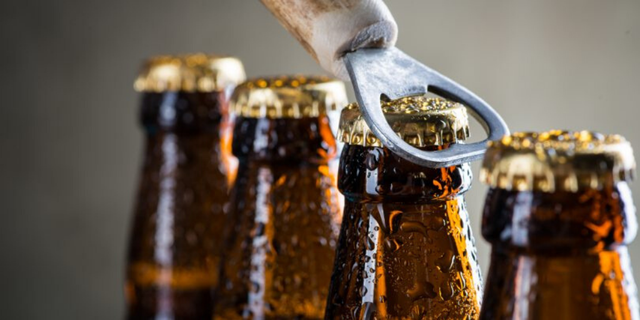
In addition, the health effects that incur medical costs are also causing young people to gradually give up alcohol consumption. In the first half of 2023, Heineken’s operating profit decreased by 22% while sales declined by 5.6% compared to the same period last year. The company’s financial report clearly indicates that high inflation has significantly affected market demand.
Specifically, Heineken pointed out the Vietnamese market, the second largest beer consumption market in Southeast Asia and the third in Asia, has experienced a significant decrease in beer consumption.
Not only Heineken but also the world’s largest beer company, Anheuser, witnessed a decline in consumer demand. However, despite the decrease in the number of customers, an increase in selling prices allowed the company to compensate and still increase revenue.
While Heineken and Anheuser were struggling with limited consumer spending, Carlsberg faced challenges in the Russian market. The business area of Baltika Breweries in Russia has been transferred to the local market, even though it contributed 13% to the group’s total revenue in 2021.
When it comes to alcoholic beverages, Russia is one of the key markets. However, the conflict in Ukraine and the imposed sanctions forced Carlsberg to abandon the market.
The company’s third-quarter 2023 business report showed a sharp decrease in beer sales after leaving the Russian market.
Nevertheless, Carlsberg is still relying on non-alcoholic beer, targeting consumers interested in health and regulations on alcohol consumption while driving for future sales.
Gloomy 2024
According to Fortune, although inflation has been contained in major economies, the beer industry cannot return to its former glory because production costs are still high.
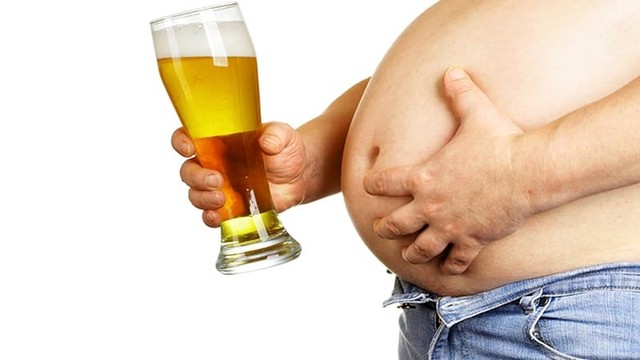
Data from “The Brewers of Europe” shows that the cost of beer and alcohol production increased by 25% in mid-2023 compared to the same period in 2019, making these products more expensive in recent times. Therefore, even if inflation has been contained in some countries, beer and alcohol will remain at high prices as there is no possibility of reducing production costs, at least until 2025.
“The overall cost of beer production continues to rise slightly, which means there will be further price increases in 2024,” admitted CEO Jacob Aarup Andersen of Carlsberg.
Another factor that prevents a decrease in beer prices is profit margins. Even though operating costs are gradually reducing, companies tend to slow down price reduction in order to increase profits and compensate for losses during periods of high inflation.
“Once major companies like Anheuser, Heineken, or Carlsberg increase prices, they rarely lower them again,” said Moritz Kronenberger, the director of investments at Union Investment, to Reuters.
This is not to mention the trend of reducing alcohol consumption for health preservation among young people, as well as governments tightening alcohol regulations in Asia.
Faced with these difficulties, beer corporations are trying to invest more in strategic markets such as Asia. Heineken admitted they are focusing on several potential markets that have shown signs of slowing down in 2023.
Similarly, Anheuser announced in July 2023 that they would invest $34 million to expand the non-alcoholic beer segment, meeting the global market demand in Asia to keep up with the new trend.
Carlsberg also stated that they will further invest in marketing strategies and brand building in Asia to improve the situation.
However, according to Fortune, returning to the golden age for beer and alcohol giants is very difficult as both Asian and global citizens are becoming more conscious of health, alongside the need to save spending during periods of high inflation.
Furthermore, government regulations tightening the control of alcoholic beverages also signal the end of the beer and alcohol’s peak period, indicating a challenging year of 2024.
Source: Fortune, Reuters
Bang Bang

